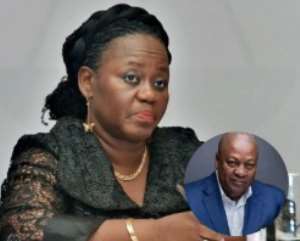
In a democracy governed not by titles but by principles, Ghana’s 1992 Constitution is the supreme expression of the people’s will. It is binding on all—not merely a reference point for the governed but a firm restraint on those who govern. When the Chief Justice herself appears to chafe against this order, the stakes are no longer personal. They are national.
Justice Gertrude Araba Esaaba Torkornoo, currently suspended from office and facing removal proceedings under Article 146 of the Constitution, has stepped into deeply troubling territory. By launching a public campaign in the midst of an active constitutional process—complete with symbolic narratives and combative press statements—she has flouted not only judicial convention but foundational tenets of the rule of law.
In-Camera Means In-Camera
Article 146(8) of Ghana’s Constitution expressly provides that all proceedings for the removal of a judge “shall be held in camera.” It is a constitutional command, not an administrative suggestion. Yet, Justice Torkornoo has vocally objected to this format and advocated for public hearings, implying that secrecy undermines justice. This stance is not only constitutionally incorrect—it is legally untenable. Former Supreme Court decisions have made it abundantly clear: in-camera hearings protect the integrity and dignity of both subject and process. As a seasoned jurist, she knows this.
Symbolism Cannot Supersede Substance
Perhaps most unsettling is Justice Torkornoo’s public association of the hearing venue, Adu Lodge, with the 1981 murder of judges—including her uncle. While personal grief must be respected, drawing parallels between a tragic chapter in Ghana’s history and a lawful constitutional process smacks of emotional manipulation. It distracts from the legal matter at hand and endangers the sobriety of national discourse. Seeking public sympathy while one is under constitutional scrutiny is not befitting the office of the Chief Justice.
The Sub Judice Breach
Justice Torkornoo’s public commentary—spanning accusations of bias, claims of illegality, and critiques of committee procedure—violates the longstanding principle of sub judice. This rule is not some elitist legal relic; it ensures fairness by preventing the court of public opinion from pre-judging cases that are still ongoing. Her conduct risks tainting the proceedings and pressuring the very institutions designed to ensure impartiality.
A Breach of Her Judicial Oath
Every Ghanaian judge swears to “preserve, protect and defend the Constitution of the Republic of Ghana.” That oath demands silence where the Constitution commands silence, and submission where the law demands it. Justice Torkornoo’s decision to cast public aspersions on a constitutional committee, challenge the authority of its chair, and mischaracterize the legal framework undermines the dignity of her position. It represents a betrayal not only of legal norms but of the moral weight of her oath.
Constitutional Literacy Is Not Optional
Justice Torkornoo’s public suggestion that petitioners must have locus standi, or that the committee lacks procedural authority, directly contradicts settled law. Such misstatements from the country’s highest-ranking judicial officer sow confusion among the citizenry and erode trust in our legal system. If those who interpret the Constitution mislead the public for personal defense, what hope is left for justice?
A Final Call to Desist
The people of Ghana are the true custodians of power. The Constitution is their shield. Justice Torkornoo must now choose whether she will be a steward of that order or an obstacle to it. Her continued public confrontation with due process threatens not only her own legacy, but the very image of an independent and impartial judiciary.
This is not a moment for spectacle. It is a moment for sobriety. Justice Torkornoo must desist immediately from any further public commentary or symbolic advocacy while her matter is under review. She must, for once, place fidelity to law above loyalty to self.
The law is the law. And it must protect all—or it protects none.🎯 📍.🤝 📣
Retired Senior Citizen
Teshie-Nungua
[email protected]
The author is a Ghanaian civic advocate and reform strategist with a deep commitment to judicial reform, constitutional fidelity, and ethical leadership. Drawing from a diaspora perspective and grounded in recent authorship and policy engagement, he champions institutional integrity and principled governance in public life.


